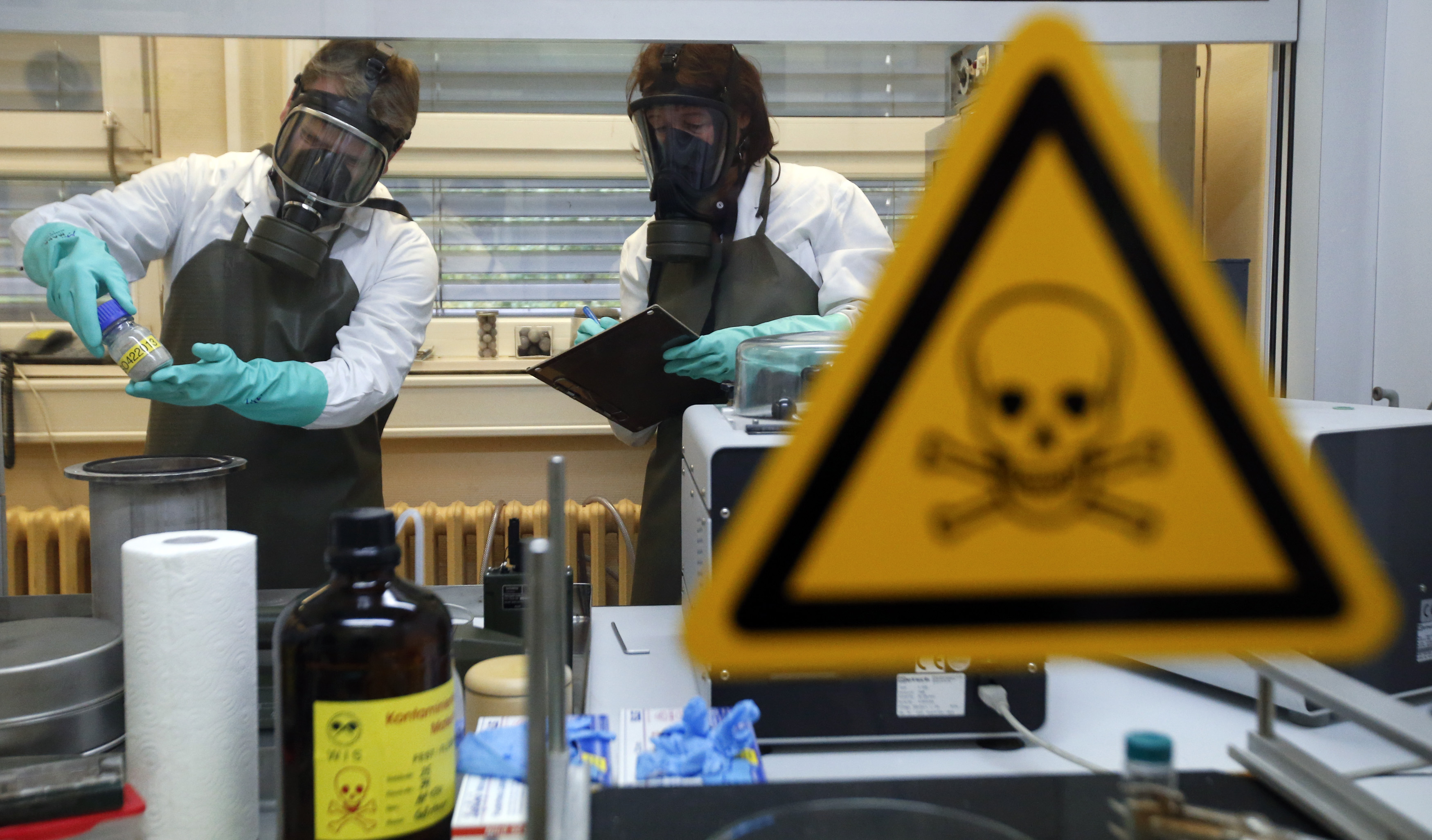Drug warriors and food paranoiacs: Partners in scientific illiteracy
This isn't how chemicals work


A free daily email with the biggest news stories of the day – and the best features from TheWeek.com
You are now subscribed
Your newsletter sign-up was successful
When I was in middle school, we were ushered into an auditorium and made to watch a police officer stand on a stage in front of a big table full of dangerous chemicals. Pointing to all the poison behind him, he intoned that we should not do drugs. Meth, he said, is supposedly made with bleach, hydrochloric acid, or other nasty stuff. So don't do meth. The clear implication was that the drug is bad because it somehow contains the ingredients used to make it.
Another similarly nonsensical line of argument comes from chemical paranoiacs like Vani Hari, better known as the "Food Babe." These people argue that the origin of a particular substance is of great importance. On her blog and in a recent book, Hari has drawn a bead on chemicals like castoreum, because it is "beaver butt," or certain dyes, because they are actually "coal tar."
These arguments are trash. They rest on a conflation between the source or method of preparation of a particular substance and the substance itself. It's long since time that both drug warriors and health nuts dropped this idea.
The Week
Escape your echo chamber. Get the facts behind the news, plus analysis from multiple perspectives.

Sign up for The Week's Free Newsletters
From our morning news briefing to a weekly Good News Newsletter, get the best of The Week delivered directly to your inbox.
From our morning news briefing to a weekly Good News Newsletter, get the best of The Week delivered directly to your inbox.
Unfamiliarity with chemical synthesis is surely part of what causes these misconceptions. When you are making any drug in a laboratory, you typically use many substances that have nothing whatsoever to do with the final product. Hydrochloric acid might be used in one step requiring an acidic environment, only to be neutralized and removed in the next step. Ether might be used as a solvent, only to be removed with a vacuum pump from the finished product.
These things are used in the process of making the drug. They aren't the drug itself — sort of like how a new car does not contain the gigantic welding robots used to manufacture it.
Now, the police officer does have a point in that many illicit drug labs do not properly purify their products — or contaminate them deliberately to increase the sold weight and make more money. But if that is really the reason drugs are bad, then D.A.R.E. ought to be teaching middle schoolers how to use a sep funnel.
The same is true of the various phobias and disgusted reactions cynically exploited by Hari. On point of fact she is actually wrong about both where castoreum comes from (not from the beaver anus) and what it is used for (perfumes, not ice cream), as well as what "coal tar" means (an anachronistic label from when the dyes were first made). But even if she weren't wrong on the facts, it's still a bogus argument.
A free daily email with the biggest news stories of the day – and the best features from TheWeek.com
Some hypothetical chemical from a hypothetical animal anus might be worrisome because the anus' owner might be being treated unethically, or unsustainably, or the product might not be sterilized properly (see the police point above). But the most important consideration by far is not where the chemical came from, but the character of the chemical itself. The fact of its origin tells you literally nothing about how it will behave in the human body. It doesn't matter where it comes from, or whether it's "natural" or manmade. Synthetic aspirin is quite safe and used by millions daily, while all-natural botulinum toxin is the most poisonous substance known (though it too has several legitimate medical uses).
Ultimately, Hari and the cops are right about some things: There are probably too many antibiotics being used in agriculture, and meth is not very good for you. But that's no excuse for either of them to resort to scaremongering agitprop that spreads scientific illiteracy.
Ryan Cooper is a national correspondent at TheWeek.com. His work has appeared in the Washington Monthly, The New Republic, and the Washington Post.
